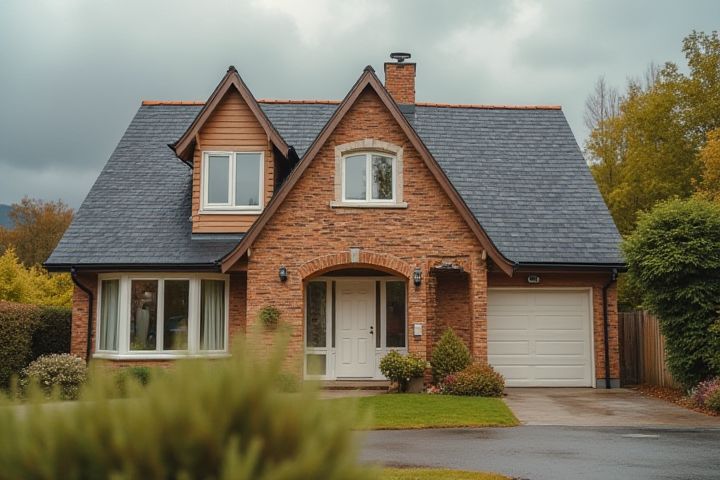
Start by creating a detailed renovation plan that outlines your goals, budget, and timeline. Focus on assessing the condition of essential structures such as the roof, plumbing, and electrical systems to ensure safety and compliance with regulations. Choose energy-efficient materials and designs to enhance sustainability while boosting your property's value. Prioritize renovating high-impact areas like the kitchen and bathrooms, as they significantly influence potential buyers. Finally, consider hiring licensed contractors for specialized tasks to achieve professional results and maintain quality throughout the renovation process.
How To Renovate A House
Set a clear budget.
Setting a clear budget is crucial for a successful house renovation, as it establishes your financial parameters and helps guide your decisions. Begin by assessing the overall project scope, which includes materials, labor, permits, and unexpected expenses, to prevent overspending. Research the costs of similar renovations in your area to ensure that your budget aligns with the current market rates and property values. By creating a detailed budget breakdown, you can prioritize essential updates while avoiding costly surprises that could derail your renovation plans.
Obtain necessary permits.
Obtaining necessary permits is a crucial step in your house renovation process, ensuring compliance with local building codes and regulations. Start by contacting your local municipality or building department to determine which permits are required for your specific project, such as structural changes, electrical work, or plumbing installations. Prepare to provide detailed plans and specifications of your renovation, as well as any required documentation like site plans or contractor information. Securing these permits not only minimizes legal risks but also helps ensure that your renovations are safe and up to code, ultimately protecting your investment.
Hire qualified professionals.
Hiring qualified professionals is crucial for a successful home renovation, ensuring quality workmanship and adherence to local building codes. A licensed contractor can streamline the project, manage timelines, and coordinate diverse teams such as electricians and plumbers, reducing the risks of costly mistakes. For specialized tasks, such as roofing or electrical work, certified experts guarantee that safety standards and regulations are met, which can also enhance your property's value. Always verify credentials, check references, and gather multiple quotes to make informed decisions that align with your budget and renovation goals.
Prioritize structural repairs.
Prioritizing structural repairs during a house renovation is essential for ensuring safety and longevity. Start by assessing key structural components, such as the foundation, roof, and load-bearing walls, which can account for up to 70% of the renovation budget. You should check for any signs of water damage, cracks, or mold, which can indicate deeper issues that require immediate attention. By addressing these critical repairs first, you not only enhance the integrity of your home, but also increase its overall value by as much as 25%.
Plan for efficient design layout.
Begin by assessing your current space and identifying areas that hinder flow and functionality, such as placement of walls or furniture. Utilize design software or online tools to create a 3D layout, allowing you to visualize potential changes and optimize room dimensions effectively. Prioritize multi-functional spaces, incorporating built-in storage solutions and flexible furniture to maximize usability. Consider the natural light sources and traffic patterns to enhance the overall aesthetic while ensuring a smooth transition from one area to another.
Choose quality materials.
Choosing quality materials is essential for a successful home renovation, as they directly impact both aesthetics and durability. High-grade materials, such as solid hardwood flooring, granite countertops, and energy-efficient windows, not only enhance the visual appeal but also provide long-term functionality. Investing in premium insulation materials can improve your home's energy efficiency, reducing utility costs and environmental impact. You should research sustainable and locally sourced options, as these choices contribute to both the planet's health and your home's overall value.
Ensure proper insulation.
Ensuring proper insulation is crucial for energy efficiency during your house renovation. Start by evaluating existing insulation in walls, attics, and basements, replacing any damaged or insufficient material. Consider using spray foam or fiberglass batts, which provide superior thermal resistance and can significantly reduce heating and cooling costs. Finally, seal gaps around windows, doors, and ducts to prevent air leaks, enhancing your home's comfort and sustainability.
Focus on energy efficiency.
Upgrading to energy-efficient windows can reduce your heating and cooling costs by 12-25%, depending on your local climate. Installing insulation in attics and walls can save you 10-50% on energy bills, making your home more comfortable year-round. Replacing old appliances with ENERGY STAR-rated models can cut energy consumption by 10-50% per device, leading to significant savings over time. Incorporating smart home technology, such as programmable thermostats, allows you to optimize energy use while maintaining comfort, saving you up to 15% on heating and cooling expenses.
Incorporate modern technology.
Incorporating modern technology into your home renovation can significantly enhance functionality and energy efficiency. Start by installing smart home systems, such as a centralized control panel that allows you to manage lighting, temperature, and security from your smartphone or tablet. Consider integrating energy-efficient appliances, which can reduce utility bills by up to 30%, while smart thermostats adjust heating and cooling based on your daily habits. Finally, explore the benefits of smart lighting systems with color-changing bulbs and automated schedules, adding both convenience and ambiance to your living spaces.
Schedule timeline realistically.
A realistic schedule for renovating a house typically spans 3 to 6 months, depending on the scope of work and size of the property. You should allocate at least 20% of your timeline for pre-renovation planning, including obtaining permits and selecting contractors. The core renovation phases, such as structural changes, electrical and plumbing upgrades, often take around 8 to 12 weeks, with finishing touches, like paint and flooring, requiring another 4 to 6 weeks. Always factor in 10-15% additional time for unforeseen delays, as they are common in renovation projects.
